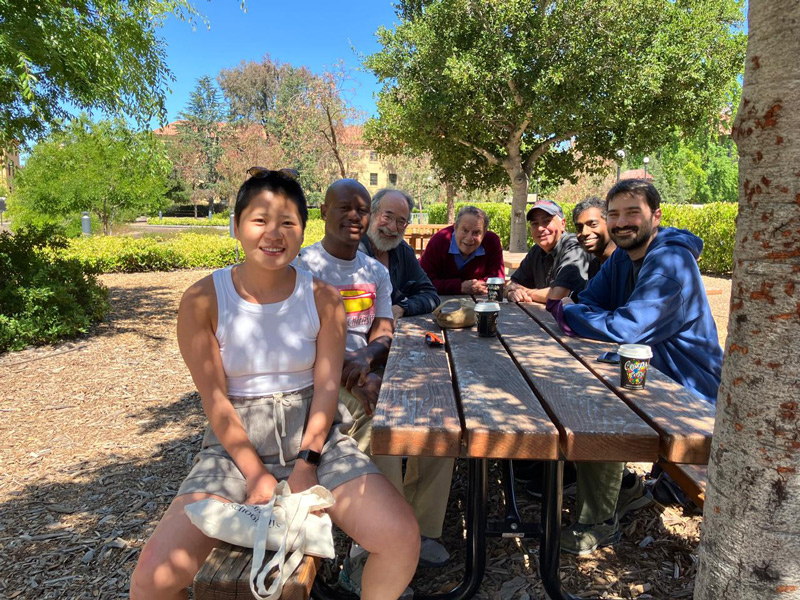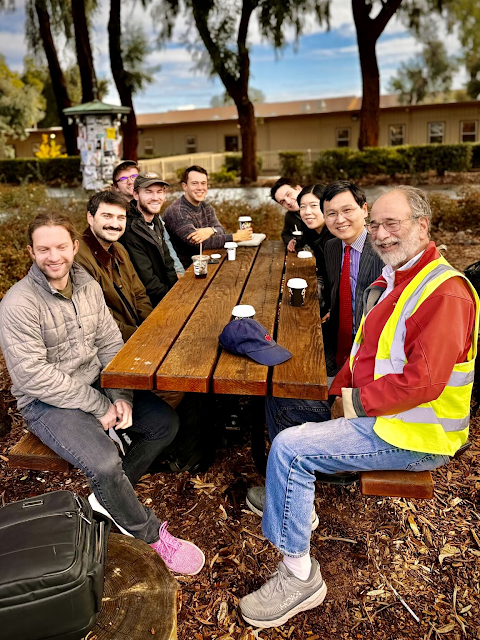“Coffee – East and West” is the title of the new exhibition at the Museum of Islamic Art in Jerusalem." Here's the story from Haaretz:
How Coffee Revolutionized Jerusalem Social Life in the 16th Century by Ronit Vered
"In the mid-16th century, complaints from residents of Jerusalem reached the palace of the sultan in Istanbul: As a result of the new custom of visiting coffeehouses, which was spreading among the city’s Muslim denizens, many of them were not praying five times a day, as prescribed by Islam.
...
"Those first cafés – others were opened around the same time in Gaza, Ramle, Nablus, Damascus and Aleppo – operated all day and all night, a sensational innovation in the pre-electricity age, when people usually went to bed early.
...
"The presence of the clients, some of whom would be seated in the street, attracted peddlers, who offered skewers of roasted meat, another nuisance and source of dirt. Tobacco was another new pleasure that the authorities and clerics tried to fight – again unsuccessfully – and the smoke of water pipes, sometimes mingled with the aroma of opium, became an inseparable part of the new coffeehouse experience. And because all the clients of these new institutions were men, for whom the public space, both religious and secular, was exclusively reserved in the Ottoman Empire – the coffeehouses were also accused of encouraging homosexuality and of generating an atmosphere liable to give rise to sexual harassment.
...
"“The story of this country is singular, because two coffee traditions coexisted here over time: Ottoman-Turkish-Arabian coffee that is cooked; and Western coffee, which is filtered and prepared by a variety of methods and in different utensils,” says Yahel Shefer, the exhibition’s co-curator (with Noa Berger), who spent the past five years studying the subject and collecting rare items associated with the material culture that sprang up side by side with the social etiquette that accompanies coffee consumption.
...
Coffee, she adds, “also gives rise to a unique institution dedicated to it, which becomes the most popular gathering place in the world. In Palestine, coffeehouses were established in the Ottoman-Arab tradition but also in the European-Western tradition, which was brought by the [German] Templers and by Jewish immigrants from Central and Eastern Europe. In the early 20th century, people in Zion Square in Jerusalem would drink Turkish-Arabian coffee in the morning, and in the afternoon hang out in the famous Café Europa.”
...
"The owners of the Jerusalem cafés opened by the mid-16th century were for the most part Muslims, though they were frequented by Jews and Christians as well. Jewish clerics joined their Muslim colleagues in expressing misgivings about the popular new beverage and the social institution that was springing up around it.
“The first Hebrew mention of a coffeehouse appears in Safed in the 1560s,” says Prof. Yaron Ben-Naeh from the department of Jewish history at the Hebrew University. “The Safed café is mentioned as having a dubious reputation, or in the words of the text, it was a place of ‘frivolous company.’ The religious arbiters of Judaism, like their Muslim counterparts, are undecided about whether it is permitted to drink coffee. Isaac Luria, the holy ‘Ari’ [“Lion,” his epithet], the greatest of the kabbalists, rules that drinking coffee is forbidden, but the believers simply ignore it. No one abides by the prohibitions.”
...
"Early evidence for the institutionalization of a local coffee culture is the existence of the coffee-sellers’ guild, which appears in the records of the Muslim court in Jerusalem in 1590."







